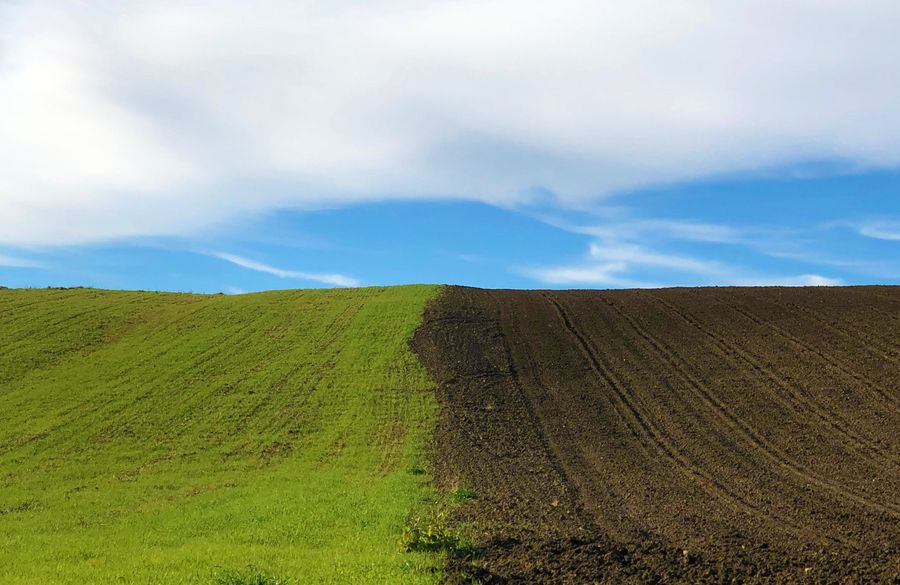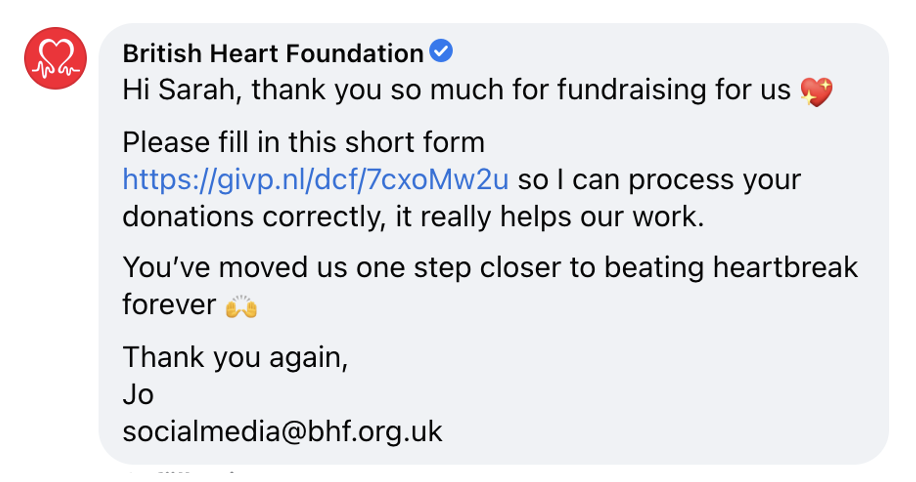
The Giving Divide: Giving hits a 5-year high in Southeast Europe, but drops in Western nations
August 4, 2021
Patrick Gibbels: Why ePrivacy proposals could give the sector an even bigger headache
September 15, 2021Marco Kuntze, director of Relishing Digital, highlights the massive growth of Facebook fundraising, exploring how organisations can build income and influence, as well as recruiting new supporters with the platform’s fundraising tools.
Believe it or not, Facebook has been around for the best part of two decades. Nonprofits have used the platform to fundraise for years, but the introduction of Facebook’s fundraising tools has revolutionised the landscape. Organisations of all sizes can now maximize their use of the channel.
Well over $5 billion has already been raised through the tools, with organisations such as A Drop in the Ocean (Dråpen i Havet) having raised as much as 45% of their total income through Facebook.
Why do I think Facebook is so powerful? It’s the biggest and most influential social network in the world. Joining the app and ecosystem offers a range of benefits. Making a donation or creating a fundraiser is much simpler and quicker than on most websites – and Facebook takes care of all the technology, making it accessible for even those who aren’t particularly tech-savvy. Facebook also actively promotes birthday fundraising to users as their big day draws near, plus donations can be made in most currencies meaning people all around the world can donate. The best bit? It’s free. No transaction fees, credit card fees or costs for technology. And once you’re signed up, you gain access to both Facebook fundraising tools and the new fundraising tools on Instagram too.
It’s important to note that there can be some challenges along the way. Be prepared for the fact that the registration process can be more difficult in some countries than others, and the data reporting is not always easy to understand. Probably the biggest issue is that donor and fundraiser contact data is hard to collect – typically, you’ll only get around 2% of donor data and no details of your fundraisers. This can make communication with fundraisers more time-consuming, and some NGOs have data protection concerns. Finally, fundraiser pages on Facebook can only last for up to 90 days – but this, and many of the other challenges of using Facebook Fundraising, can be addressed with a little bit of creativity.
How to get started? Here are my top tips for making the most of Facebook for fundraising.
Sign up to Facebook Fundraising Tools
Facebook’s fundraising tools are becoming more and more widely available. They are currently available in Austria, Belgium, Denmark, Finland, France, Germany, Ireland, Italy, Luxembourg, Netherlands, Norway, Poland, Portugal, Sweden, Spain, Sweden, United Kingdom, United States.
When you apply it is critical to double-check that all the information you upload is correct, legible and consistent with any information you have already provided to Facebook.
Learn more about the Facebook Fundraising Tools or sign up.
Test the experience
See what the experience is like for supporters by making a donation through Facebook and setting up a fundraising page. If you’re not yet signed up, test it out by supporting another organisation such as WWF in Germany or Breast Cancer Now in the UK.
Check out how easy it is to find your organisation by going to www.facebook.com/fundraisers and searching for keywords relevant to your organisation such as cancer, dogs or mental health. You can already see nonprofits that your Facebook friends have supported – the more you post content, get donations and pay for ads, the more visibility Facebook will give you.
Add a Donate Button to your organic Facebook Posts
Adding a Donate Button to any of your organic Facebook posts is easy and quick to do. Test it with different posts including photos, videos, Live-Videos or any other content. It doesn’t need to be a post with a specific fundraising ask – try it with the type of post that gets the most likes, shares and comments. You could be surprised how many donations you get.
You can do this every week because it is not the same as a regular fundraising ask – only a small number of your Facebook fans see your organic posts. Take things a step further and boost the post with an ad. Just €10-20 should be sufficient.
Start a crowdfunding campaign or appeal
Creating a crowdfunding campaign takes just two minutes and requires no technical knowledge or help from your digital team. It’s important to set a fundraising goal that is achievable within a week or two as most campaigns are short-term – try €1,000 or €5,000 depending on how many fans you have on Facebook. You can always increase your goal if you hit it. As with any fundraising appeal, make the outcome clear and tangible, such as €1.000 will buy emergency food rations for 100 children.
Once you’ve launched, invite people to get involved via Facebook, posting it in Facebook Groups and boosting it with ads. Don’t forget to add regular updates to the campaign page to keep people who have donated or engaged informed.
Crowdfunding campaigns work particularly well for emergencies, so ensure you’re prepared if the time comes. What content can you pre-write? Who is able and authorised to launch the campaign and to boost it with ads?
Highlight birthday fundraisers to attract more
Facebook asks people to create a fundraiser a few days before their birthday and, as a result, many charities get 100s of birthday fundraisers every year. You should thank all those fundraisers, and publicise them to help attract more. Pick some interesting fundraisers and write a public thank you, linking to their page. This will show other supporters how they can do it too.
Why not ask colleagues, volunteers, ambassadors, influencers, business partners and your most engaged supporters to create a birthday fundraiser? You could also run Facebook ads for supporters with an upcoming birthday or email supporters to ask them to give it a try.
Thank your fundraiser and start a relationship with them
Facebook Fundraisers who have been thanked typically raise 20% more than others, so it’s an important step to take, while also laying the foundations for a longer-term relationship. It’s a relatively quick and easy step to check your Facebook Business Account for a list of your fundraisers and write thank you posts on their fundraising pages. This will trigger a notification to the fundraiser. Reaching out to supporters in this way enables you to ask for their contact details and start your stewardship journey.
It’s easy to thank your fundraisers if you only get a few each month. However, once you get more than 20 fundraisers it can be difficult to keep track. An online tool such as GivePanel makes the thanking process easy and efficient, and provides a dashboard for all your Facebook Fundraising.
Your thank you message only needs to be short, but it should be personalised and authentic (no corporate language), text-only (no photo or video) and include a request for the supporter’s details.

Try Facebook Challenge Events
Once you’ve mastered all of the above, it’s time to launch your first virtual Facebook Challenge Events. These are simple challenges such as walking 500.000 steps in November or doing 3,000 squats in October. These challenges should be possible for anyone to do at home and ideally also offer the personal benefit of getting fitter! Like any challenge, it’ll need a little investment, but with Facebook a small amount can go far.
Conclusion
As with all new fundraising tools and techniques, there’s a lot to learn and it can take time to build up skills and experience. But it’s easy to get started with fundraising buttons and birthday fundraisers. Facebook Fundraising tools offer many opportunities for nonprofits to raise money, so it’s time to give it a go!
About Marco Kuntze

Marco Kuntze, Relishing Digital
Marco is a digital fundraiser who specialises in Facebook and peer-to-peer fundraising. Through his company Relishing Digital, he provides strategic advice and practical support to large and small charities such as Unicef, WWF and Sea-Watch. He advises a number of fundraising technology companies and regularly speaks at conferences and events worldwide, offering strategic workshops, training, mentoring and practical support. Email Marco here.
Main feature photo (Facebook icons) by Alexander Shatov on Unsplash





